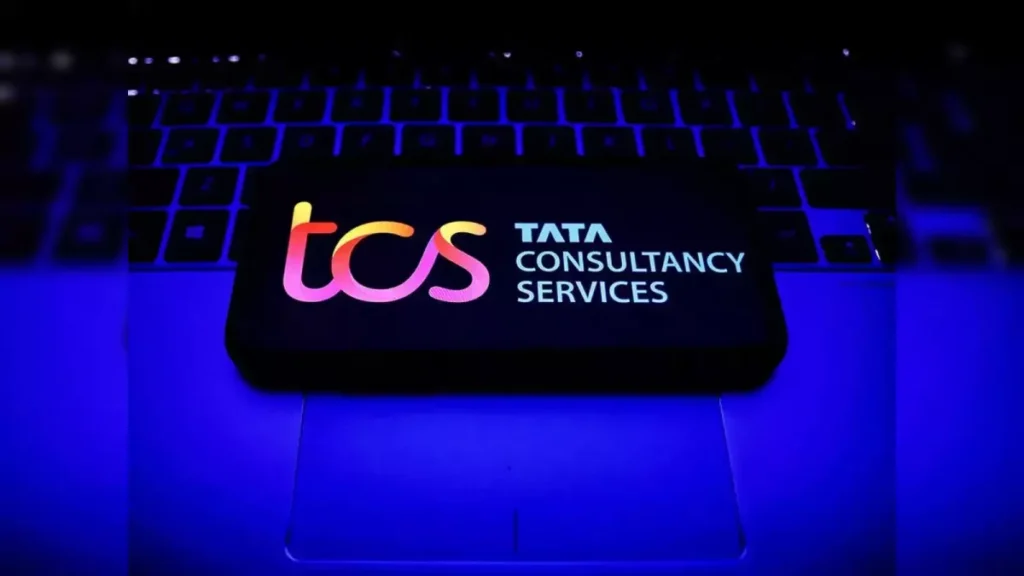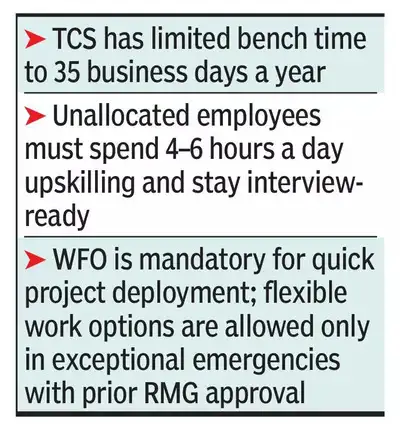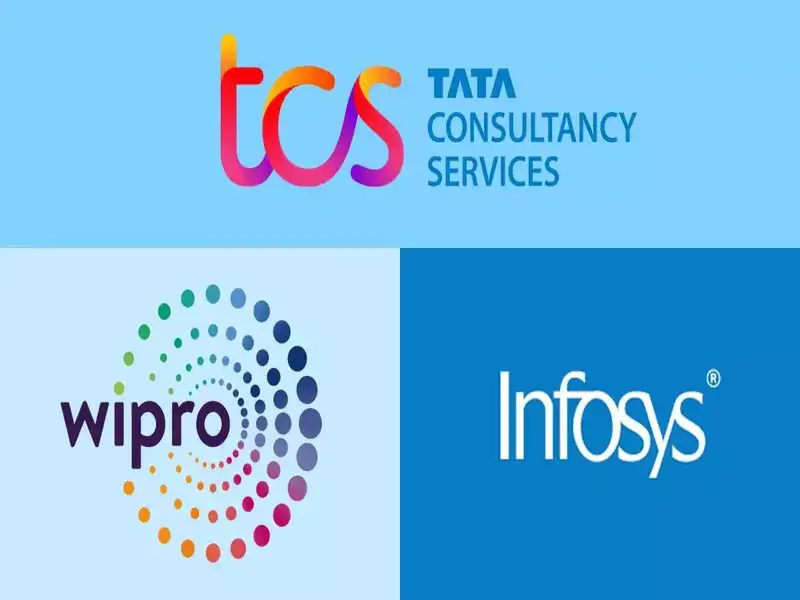TCS’s New Game Plan: Work Hard or Stay Home?

Tata Consultancy Services (TCS), India’s largest IT services provider, has long been a bellwether for the country’s technology sector. With a workforce exceeding 600,000 and a global footprint, TCS’s policies often set the tone for the industry. In 2025, the company introduced a bold new deployment strategy that has sparked debate among employees, analysts, and competitors alike. Dubbed by some as “Work Hard or Stay Home,” this policy emphasizes stringent attendance requirements, a cap on non-billable “bench” time, and performance-linked compensation. This article delves into the nuances of TCS’s game plan, its implications for employees, and its broader impact on the IT industry.
The Core of TCS’s New Policy
At the heart of TCS’s strategy is a push for operational efficiency and workforce accountability. Key components include:

- Mandatory 225 Billable Days: Employees must log at least 225 billable days annually, equivalent to roughly 90% of a standard work year. This leaves a maximum of 35 days for non-billable activities, such as training, transitions, or being on the “bench” (unassigned to client projects).
- Five-Day Work-from-Office Mandate: Unlike competitors like Infosys and Wipro, which maintain hybrid models requiring two or three office days weekly, TCS has enforced a full five-day in-office policy. Exceptions for personal emergencies are capped at six days per quarter, with unused days non-transferable to the next quarter.
- Stricter Attendance Tracking: TCS has banned bulk uploads and backend modifications for attendance records, limiting backdated entries to two prior working days. Employees must submit missing entries for the current month by the 5th of the following month. Up to 30 exception requests can be filed in a single entry, with network issues grouped into five entries, but unprocessed requests are auto-rejected after 10 days.
- Variable Pay Linked to Compliance: Entry-level employees receive full variable pay, while mid- and senior-level staff have their bonuses tied to business performance and attendance adherence. Non-compliance with office attendance can halve variable pay for 60-75% office presence or reduce it to 75% for 75-85% presence.
These measures aim to maximize resource utilization, a critical metric for TCS’s profit margins, as articulated by Chief Human Resources Officer Milind Lakkad. The company believes that a structured in-office model fosters collaboration, mentorship, and cultural integration, particularly for newer employees hired during the pandemic era.
Why Now? The Context Behind the Shift
TCS’s policy overhaul comes amid a challenging economic landscape for the IT industry. Global demand for IT services has softened due to inflationary pressures, geopolitical uncertainties, and clients’ cautious spending. Indian IT firms, including TCS, face margin pressures as they navigate higher operational costs and wage inflation. Posts on X reflect industry sentiment, with users noting that TCS’s 35-day bench cap signals a “grim picture” for the software sector, hinting at cost-cutting measures or even potential layoffs.
Historically, TCS experimented with flexible work models. In 2020, it introduced the “25×25” vision, aiming for only 25% of employees to work from offices at any time by 2025, with 75% working remotely. The Secure Borderless WorkSpaces (SBWS) framework supported this during the pandemic, ensuring data security and productivity. However, by 2023, TCS reversed course, citing the need for in-person collaboration to integrate its workforce, especially the 150,000+ employees hired virtually in recent years. Chief Operating Officer NG Subramaniam emphasized in 2024 that remote work posed challenges to work culture and security, prompting a return to pre-pandemic norms.
The policy also responds to internal dynamics. TCS reported a marginal decline in women employees (35.5% in June 2024) and fluctuating attrition rates. Lakkad has dismissed concerns about these trends, pointing to flexible pre-pandemic policies, but the new rules suggest a strategic pivot to stabilize operations and retain talent through structured engagement.
Employee Reactions: A Mixed Bag
The policy has elicited polarized responses. Supporters argue it promotes fairness and accountability. An anonymous TCS employee on AmbitionBox praised the company’s focus on learning and collaboration, noting that in-office work enhances team dynamics and career growth. TCS’s job security, rated 4.5/5 on the platform, remains a draw for many.
However, critics see the policy as draconian. Social media platforms like X and Quora buzz with discontent. One X user called the 35-day bench cap a “precursor to layoffs,” while another lamented TCS’s “peanuts” salaries juxtaposed with rigid rules. On Quora, employees vented about the lack of hybrid flexibility, especially for those in high-cost, polluted urban centers like Bangalore’s Whitefield. A Reddit thread highlighted concerns about variable pay cuts despite strong performance, with one user questioning, “What’s the point of following rules if pay doesn’t reflect effort?”
The five-day office mandate has also sparked debate about work-life balance. Employees commuting in traffic-choked cities face added stress, and some argue that hybrid models adopted by competitors better accommodate modern needs. Lakkad has acknowledged these concerns, hinting that the policy may be revisited once “operational stability” is achieved, but no timeline has been specified.
Industry Implications
TCS’s aggressive stance sets it apart from peers. Infosys and Wipro, for instance, maintain hybrid models, requiring two to three office days weekly. This divergence could influence talent acquisition and retention. X posts suggest that “good talents” are leaving TCS due to its policies, with some claiming competitors are more attractive to new joiners. However, TCS’s scale and reputation may cushion it against significant talent drain.

The policy could also reshape industry norms. As the sector leader, TCS’s moves often prompt competitors to follow suit. In 2020, its rapid shift to remote work spurred similar actions by Infosys and Wipro. If TCS’s in-office model proves successful—measured by improved margins or productivity—others may tighten their own policies. Conversely, if employee dissatisfaction leads to higher attrition or reputational damage, TCS may face pressure to recalibrate.
Analysts are divided. Some see the policy as a pragmatic response to economic headwinds, aligning compensation with performance and reducing idle costs. Others warn of cultural erosion. A 2025 X post lamented TCS’s shift from a “magnificent culture of people, process, and ethics” to a profit-driven model, suggesting long-term reputational risks.
The Road Ahead
TCS’s “Work Hard or Stay Home” strategy is a high-stakes gamble. By prioritizing in-office work and billable hours, the company aims to boost efficiency and maintain its competitive edge. Yet, the policy’s success hinges on execution. Will TCS foster the positive workplace Lakkad envisions, where employees feel motivated despite stringent rules? Or will dissatisfaction fester, driving talent to more flexible competitors?
For employees, the policy demands adaptation. Those who thrive in structured environments may benefit from enhanced visibility and career opportunities. Others, particularly those valuing flexibility, may face tough choices. For the industry, TCS’s experiment could redefine post-pandemic work models, proving whether a return to traditional office culture can coexist with modern expectations.
As Milind Lakkad stated in a 2025 communication, “I urge every leader to foster a positive and happy workplace.” Whether TCS can deliver on this promise while enforcing its rigorous game plan remains to be seen. For now, the IT giant is betting that hard work—in the office—will pave the way to future success.
Last Updated on: Tuesday, June 17, 2025 4:34 pm by Charan Sai Reddy | Published by: Charan Sai Reddy on Tuesday, June 17, 2025 4:33 pm | News Categories: Business
About Us: The Statesman India covers the latest News on Current News, Business, Sports, Tech, Entertainment, Lifestyle, Automobiles, and more, led by Editor-in-Chief Ankur Srivastava. Stay connected on Facebook, Instagram, LinkedIn, X (formerly Twitter), Google News, and Whatsapp Channel.
Disclaimer: At The Statesman India, we are committed to providing accurate, reliable, and thoroughly verified information, sourced from trusted media outlets. For more details, please visit our About, Disclaimer, Terms & Conditions, and Privacy Policy. If you have any questions, feedback, or concerns, feel free to contact us through email.
Contact Us: newssites1234@gmail.com
